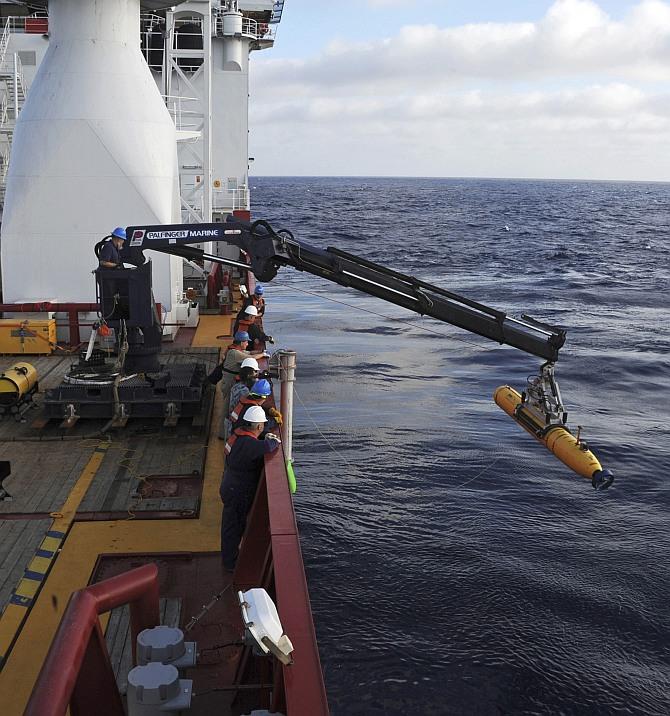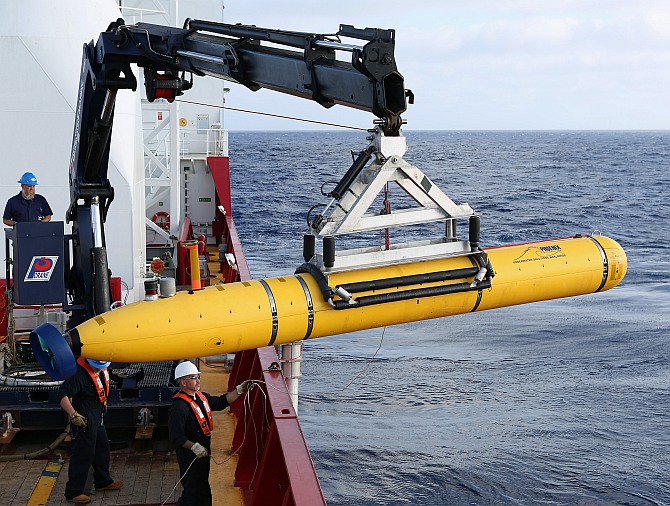
In another setback to the search for the crashed Malaysian jet, the second mission of the underwater drone being used to locate the plane's wreckage was aborted on Wednesday due to a "technical" trouble as it resurfaced without making any "significant detections".
"The Autonomous Underwater Vehicle, Bluefin-21, was forced to resurface this morning to rectify a technical issue. While on deck, its data was downloaded," Australia's Joint Agency Coordination Centre (JACC) said on the 40th day of the search for the Malaysia Airlines Flight MH370.
The Bluefin-21, a US Navy probe equipped with side-scan sonar, was then redeployed and it is currently continuing its underwater search, the JACC said.
...

"Initial analysis of the data downloaded this morning indicates no significant detections," it said.
This was the second time the search by the underwater vehicle suffered a setback.
The mini-submarine had been deployed last night from Australian Navy ship Ocean Shield after its first mission was aborted prematurely due to challenging depths of the Indian Ocean.
"After completing around six hours of its mission, Bluefin-21 exceeded its operating depth limit of 4,500 metres and its built in safety feature returned it to the surface," the JACC had said on Tuesday.
...

US Navy Captain Mark Mathews of the Bluefin search team said the initial launch on Monday night took place "in the very far corner of the area it is searching, so they are just shifting the search box a little bit away from that deep water and proceeding with the search."
The search for the missing plane could take up to two months as the underwater vehicle takes six times longer to cover the same area as the towed pinger locater, officials said.
"It is estimated that it will take the AUV anywhere from six weeks to two months to scan the entire search area," Lt J G Daniel S Marciniak, a spokesman for the US Seventh Fleet, said in a statement.
Meanwhile, the aerial and sea search for the plane continued with up to 11 military aircraft, three civil aircraft and 11 ships taking part in today's operations.
Finding the black box and the wreckage are crucial to know what happened on March 8 before the Beijing-bound plane with 239 people, including five Indians, an Indo-Canadian and 154 Chinese nationals, mysteriously vanished on March 8 after taking off from Kuala Lumpur.